Table of Contents
Quality Service Guarantee Or Painting Free

Get a rental agreement with doorstep delivery

Find the BEST deals and get unbelievable DISCOUNTS directly from builders!

5-Star rated painters, premium paints and services at the BEST PRICES!
Loved what you read? Share it with others!
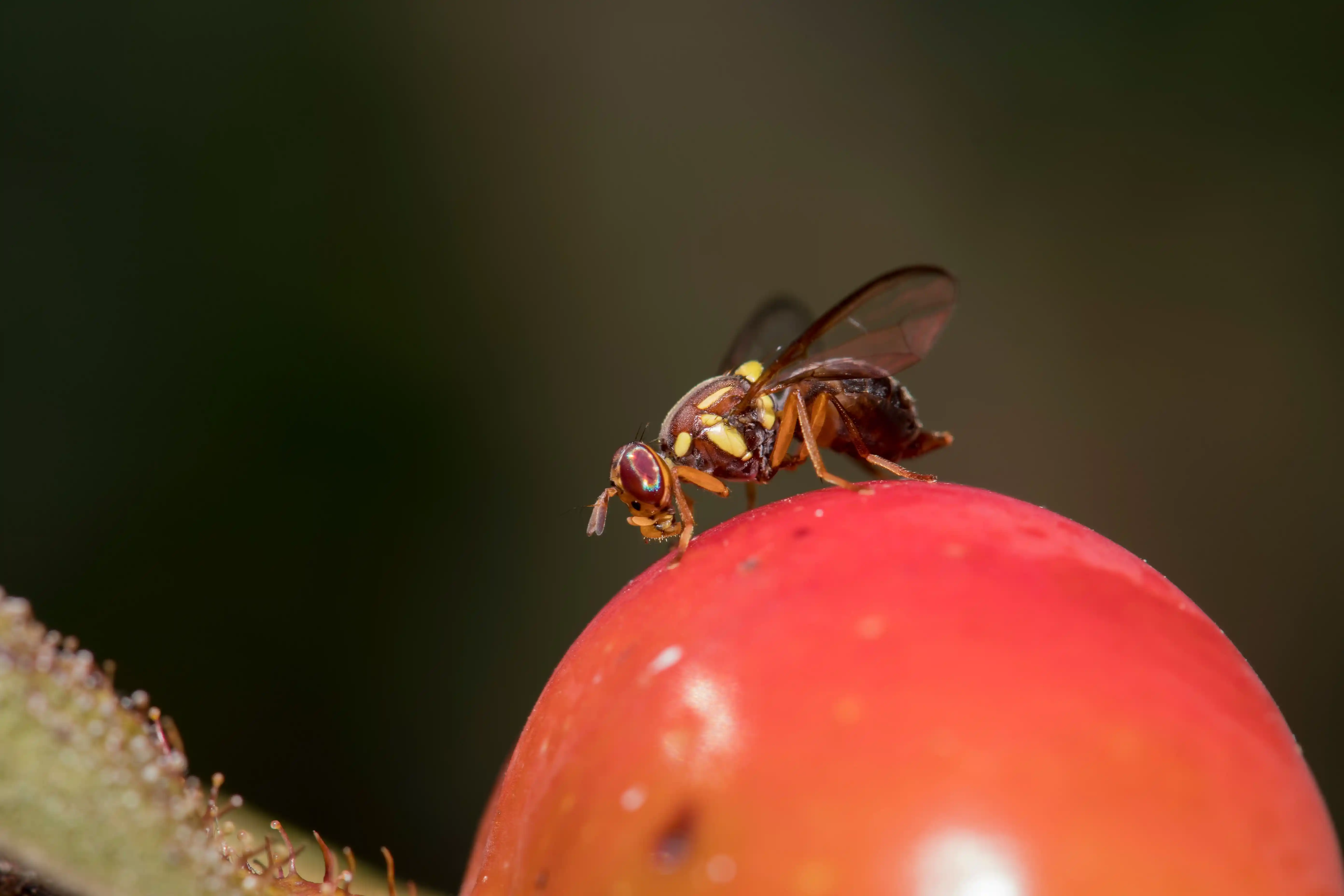

Submit the Form to Unlock the Best Deals Today
Help us assist you better
Check Your Eligibility Instantly

Experience The NoBrokerHood Difference!
Set up a demo for the entire community
How to Get Rid of Fruit Flies in Your Kitchen: Tips and Tricks
Table of Contents
Are you wondering how to get rid of fruit flies in your kitchen? Fruit flies like to hang out near ripe fruits or vegetables. Fruit flies can be pesky little insects, but there is no need to worry. In this blog, we’ll explain easy ways to get rid of fruit flies using the things you probably already have at home.
Common Types of Fruit Flies
Fruit flies are little insects that will be hanging around ripe fruits or vegetables. There are different types of fruit flies. Here are common types of fruit flies:
- Mexican Fruit Flies: These pests bother oranges and other fruits in Mexico and the Southern United States.
- Mediterranean Fruit Flies: These flies like lots of fruits and vegetables and are causing a big problem in many countries.
- Citrus Fruit Flies: As the name suggests, these bugs primarily eat citrus fruits.
- Caribbean Fruit Flies: These flies are a big problem for fruits in the Caribbean.
- Olive Fruit Flies: These flies bug olive trees.
- Western Cherry Fruit Flies: These flies mostly bug cherries in the western parts of North America.
- Common Fruit Fly: Also known as Drosophila Melanogaster exists in ripe fruits, vegetables and waste bins.
Reasons Why Fruit Flies Are a Nuisance
Fruit flies can quickly become a big problem at home. Here are the reasons why fruit flies are a nuisance:
Quality Service Guarantee Or Painting Free

Get a rental agreement with doorstep delivery

Find the BEST deals and get unbelievable DISCOUNTS directly from builders!

5-Star rated painters, premium paints and services at the BEST PRICES!
- Rapid Reproduction: Fruits flies have a short life span but their reproduce quickly. This makes it hard to get rid of them.
- Attracted to Food: Fruit flies like ripe fruits and vegetables. They can make our food yucky.
- Spread Gems: Fruit flies carry germs on their bodies and transfer them to our food and tables.
- Constant Annoyance: Fruit flies constantly buzz around and bother us, especially in the kitchen.
- Hard to Eliminate: Since they multiply too fast, it can be tough to eliminate from our homes.
Understanding Fruit Fly Behaviour
Fruit flies affect our fruits and vegetables in the kitchen. Understanding fruit fly behaviour will help us know how to stop them from infecting our food.
1. Fruit Fly Life Cycle
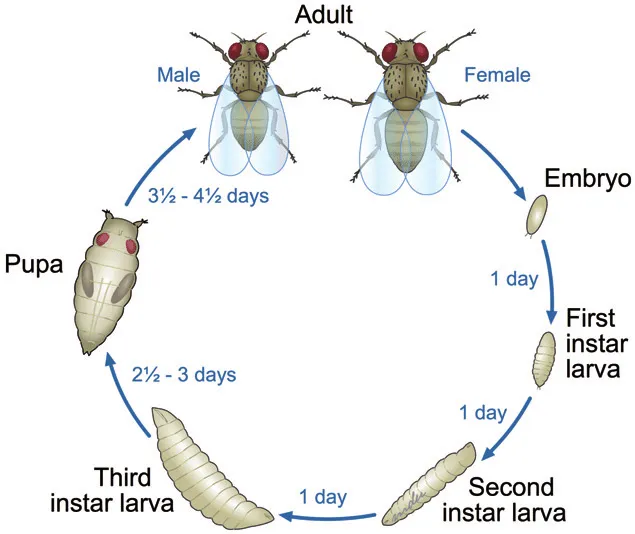
The whole growing up of a fruit fly happens in just one week, making it hard to control their population. Here is the life cycle of a fruit fly:
- Egg: Mom fruit flies lay tiny, oval-shaped eggs on old fruits or vegetables.
- Larva: The eggs hatch into small, legless maggots. They eat the old stuff and grow fast.
- Pupa: The larvae form a protective shell around themselves and change a lot inside.
- Adult: After a few days, an adult fruit fly comes out of the cover. Now it’s ready to mate and start the cycle again.
2. Fruit Fly Attraction to Sweet, Fermented, and Decaying Substances
Fruit flies really like certain kinds of foods. Here’s the info on fruit fly attraction to sweet, fermented, and decaying substances:
- Sweet: Fruit flies are quickly attracted to sweet stuff in ripe fruits, old fruits, and sugary drinks and foods.
- Fermented Substances: A byproduct of fermentation, alcohol is a strong attractant for fruit flies. Fruit flies loves this and can be found near spilled drinks or open bottles.
- Decaying Substances: As fruits, veggies, and other organic matter decay, they become breeding spots for bacteria and yeast. These spots are found highly attractive to these flies. The breeding cycle lasts for a week.
3. Fruit Fly Breeding Habits
Fruit flies are prolific breeders, and their rapid reproduction cycle is a significant factor. Here are some important factors of fruit flies' breeding habits:
- Short Generation Time: Fruit flies can grow from eggs to adults in just one week. This allows for an increase in population growth of fruit flies.
- Large Number of Offspring: A female fruit fly can lay many eggs. Thus, contributing to the rapid exponential population of fruit flies.
- Attraction to Decaying Matter: Fruit flies like to lay their eggs in moist, old fruit, vegetables, or even in the garbage.
- Hidden Breeding Sites: They are good at finding hidden spots to lay their eggs, making it hard to get rid of them.
Effective Methods to Get Rid of Fruit Flies
Fruit flies can be a big problem, but there are easy ways to get rid of them. Here are some effective methods to get rid of fruit flies:
1. Home Remedies
These methods are inexpensive and are good for the environment:
- Apple Cider Vinegar and Water Trap
- Materials: Apple cider vinegar, water, dish soap, a jar or glass, and plastic wrap.
- Method: Fill half of the jar with apple cider vinegar. Add a few drops of dish soap. Cover the top with plastic wrap and use a rubber band to keep it in place. Poke small holes in the plastic wrap. The flies get attracted to the vinegar, enter the holes, and get stuck in the soapy water.
- Wine and Water Trap
- Materials: Wine, water, dish soap, a jar or glass, and plastic wrap.
- Method: This method is similar to the apple cider vinegar trap, but it replaces the vinegar with wine. This method is especially effective for sweet wine varieties. The flies get attracted to the wine and are trapped.
- Banana and Wine Trap
- Materials: Overripe banana, wine, a
- Method: Place an overripe banana slice in a jar or bowl. Transfer a small amount of wine. The combination of the sweet banana and fermented wine will attract fruit flies.
- Essential Oil and Water Spray
- Materials: Water, essential oils, a spray bottle.
- Method: Mix small drops of essential oil with water in a spray bottle. Spray this mix where you see fruit flies. The strong smell will keep them away.
2. Commercial Products
When using any commercial products, read the label and instructions carefully. Here are some commercial products:
- Insecticides and Repellants
- Insecticides: Brands like Hit, Baygon, and Mortein offer products especially for flying insects. These products can be effective in killing fruit flies. Be careful while using them, and always read and follow the instructions on the label.
- Repellants: Oil-based repellents are useful for killing these flies. These can keep fruit flies away from certain spots.
- Fruit Fly Traps and Sticky Tapes
- Fruit Fly Traps: These traps have bait that attracts flies. Once inside, the flies get stuck. These traps are usually safe for pets and kids.
- Sticky Tapes: These traps catch fruit flies with their sticky glue. They are often less effective than traps but can be used as a supplementary method.
3. Natural and Organic Methods
Using natural and organic methods can help eliminate fruit flies without harsh chemicals. Here are some methods:
- Using Neem Oil and Insecticidal Soap:
- Neem Oil: This oil is taken from the neem tree. Spray this on plants to stop bugs from infecting the food. It disrupts the insect’s life cycle.
- Insecticidal Soap: A mild soap solution that physically suffocates insects. While effective against soft bugs, its impact on fruit flies might be limited.
- Planting Fruit-Fly Repellant Plants: Planting basil, lavender, mint, tulsi, and rosemary can help keep fruit flies away. These plants have strong smells that fruit flies don’t like.
- Using Diatomaceous Earth: This is a fine powder made from tiny fossils. It helps get rid of fruit flies in the kitchen. The powder's sharp bits cut the bugs, drying them out and killing them. You just have to sprinkle the powder around places where fruit flies sit or hide.
Eliminating Fruit Flies in Specific Areas
Fruit flies can be annoying, especially in certain places. Here’s how to eliminate fruit flies in specific areas:
Getting Rid of Fruit Flies in the Kitchen
The kitchen is the epicentre of a fruit fly infestation due to abundant food sources. Here’s how to get rid of fruit flies in the kitchen:
Cleaning and Disinfecting Surfaces
Wipe down counters, the stove, and other surfaces with hot, soapy water. Use a cleaner to kill germs that might attract fruit flies. Pour hot water down the sink to get rid of stuff harbouring fruit fly larvae.
Removing Food Sources and Waste
Throw away old or rotten fruits and vegetables. Quickly clean up any spills and crumbs. Empty trash cans often and clean them with disinfectant. Run hot water and ice cubes through the garbage disposal to help clear it.
Using Traps and Repellants
Use apple cider vinegar, wine, or overripe fruit traps. Peppermint or eucalyptus is a natural repellent that keeps fruit flies away.
2. Removing Fruit Flies From Houseplants
Fruit flies are often attracted to the moist and organic environment of houseplants. Here’s how to get rid of fruit flies in plants:
Improving Soil Drainage
Excessive moisture is a breeding ground for fungus gnats, which can resemble fruit flies. Keep the soil dry a bit between watering. Make sure your pots have holes at the bottom. To the soil, add perlite or vermiculite to help the water drain better.
Using Neem Oil or Insecticidal Soap
Neem oil is a natural bug killer that stops bugs from growing. It’s safe for plants. Insecticidal soap suffocates soap. Spary neem oil or insecticidal soap to the whole plant, even under the leaves. Do this as often as needed.
Repotting Infested Plants
If the bugs are severe and other methods don’t work, repot the plant. Remove the plant from its pot, shake off the old dirt, and check the roots for bugs. Then, put the plant in fresh, clean potting soil.
3. Eliminating Fruit Flies in the Bedroom
Sometimes, fruit flies can get into the bedroom. Here is how to get rid of fruit flies in the bedroom:
Removing Food Sources and Waste
Even tiny crumbs can attract fruit flies to the bedroom. Vacuum often and clean surfaces. Also, ensure no food bits are in your sheets or pillowcases. Keep bedroom trash cans sealed and empty them often.
Using Traps and Repellants
Put fruit fly traps near windows or doors where they might come in. To keep flies away, use essential oil diffusers that smell like peppermint or eucalyptus.
Improving Ventilation and Air Circulation
Allow fresh air to circulate, which can rid away fruit flies. Use fans to make the air move. This makes it hard for fruit flies to stay.
Preventive Measures and Long-Term Control
To keep fruit flies away for a long time, follow these preventive measures and long-term control tips:
Maintaining Cleanliness and Hygiene
- Regularly wipe down the countertops, sinks, and stovetops.
- Promptly clean the spills and crumbs to avoid fruit flies.
- Wash your dishes promptly, especially those with food residue.
- Keep the floors clean and free of food particles.
Addressing Moisture Issues
- Fix if there is any leaking in the pipes and faucets.
- Ensure that there is proper ventilation in the bedroom and the kitchen.
- Use dehumidifiers in damp areas if necessary.
- Clean drains regularly to remove organic matter.
Proper Storage and Disposal of Organic Matter
- Keep fruits and vegetables in the refrigerator or airtight containers.
- Tightly seal the garbage waste and take out the trash regularly.
- Compost food scraps outdoors in a secure container to avoid attracting fruit flies.
Encouraging Natural Fruit Fly Predators
While not always practical indoors, some natural predators, such as spiders, parasitic wasps, and certain birds, can help control fruit fly populations outdoors.
NoBroker: Leading Home Service Provider in India
To keep your home clean and friendly, learn how to eliminate fruit flies. Keep your home clean, fix leaks, store food properly, and use traps and repellents. These steps will help keep fruit flies away. If you need more help with home service, contact NoBroker Home Services. We offer professional cleaning, pest control, and more services to ensure your home stays fruit fly-free. Download the NoBroker app today!
Frequently Asked Questions
Ans: The life span of fruit flies is 28 days. But their reproduction is too quick, and they cannot get rid of it easily.
Ans: Fruit flies lay their eggs in wet, decaying organic matter, usually near food sources.
Ans: One good way is to use an apple cider vinegar trap. The flies like the vinegar but get stuck in the soapy water. You can also use fruit or wine traps to get rid of house flies.
Ans: It’s hard to rid of fruit flies forever, but you can make them go away for a long time. Keep your home clean, throw away garbage often, and keep fruits and vegetables in the refrigerator.
Ans: White vinegar is the best way to eliminate fruit flies. Mix white vinegar with small amounts of dish soap in a jar. Cover the jar with the plastic jar and poke some holes in it. The flies will enter the jar and get stuck in it.
Ans: Use neem oil or insecticidal soap to get rid of the house flies. If the plant is severely infested, you might need to repot it with fresh soil.
Recommended Reading

How to Clean Kitchen Exhaust Fan Properly?
January 15, 2025
7619+ views
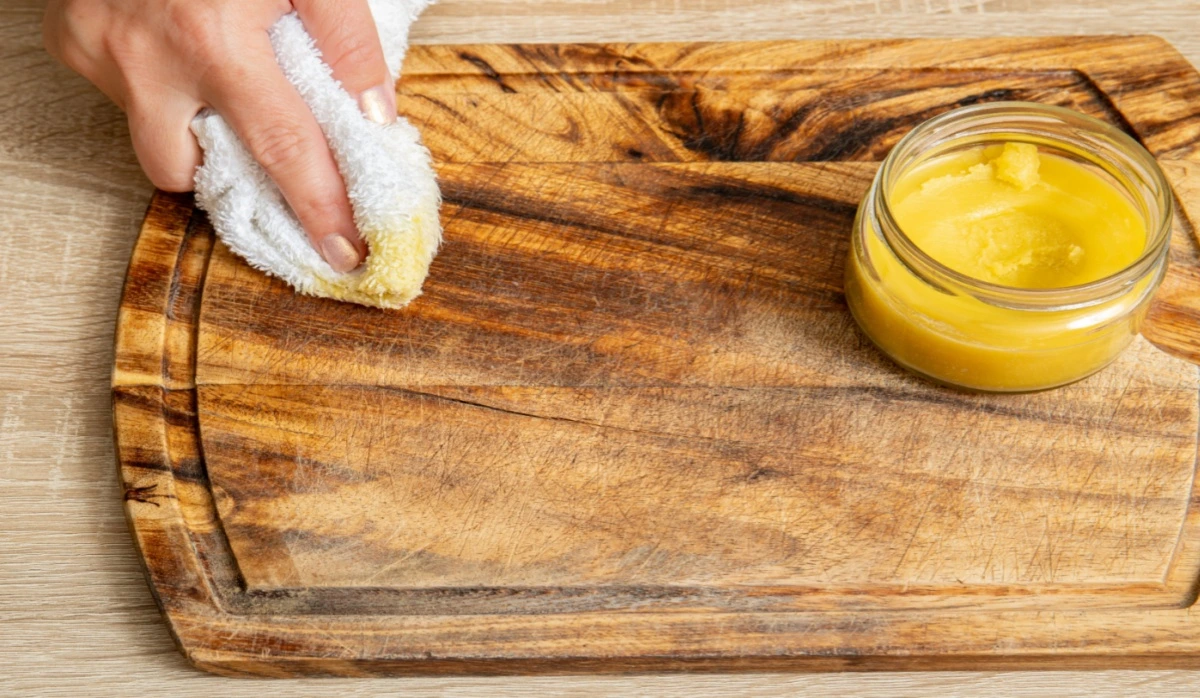
How to Clean a Wooden Cutting Board and Keep It Bacteria-Free in 2025
November 29, 2024
279+ views
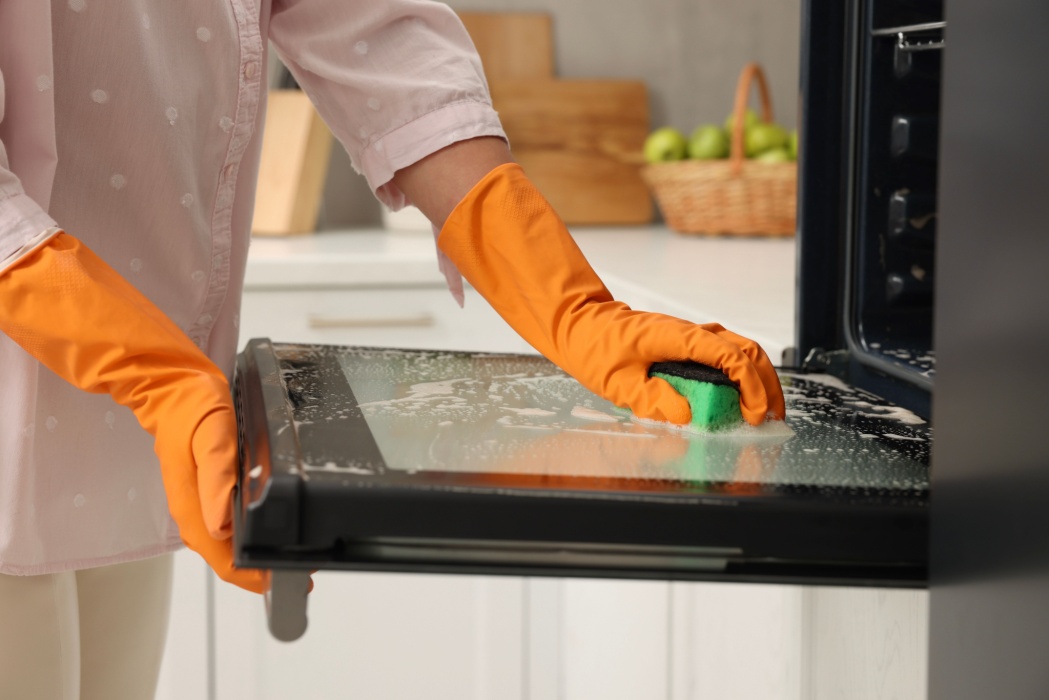
November 6, 2024
3365+ views
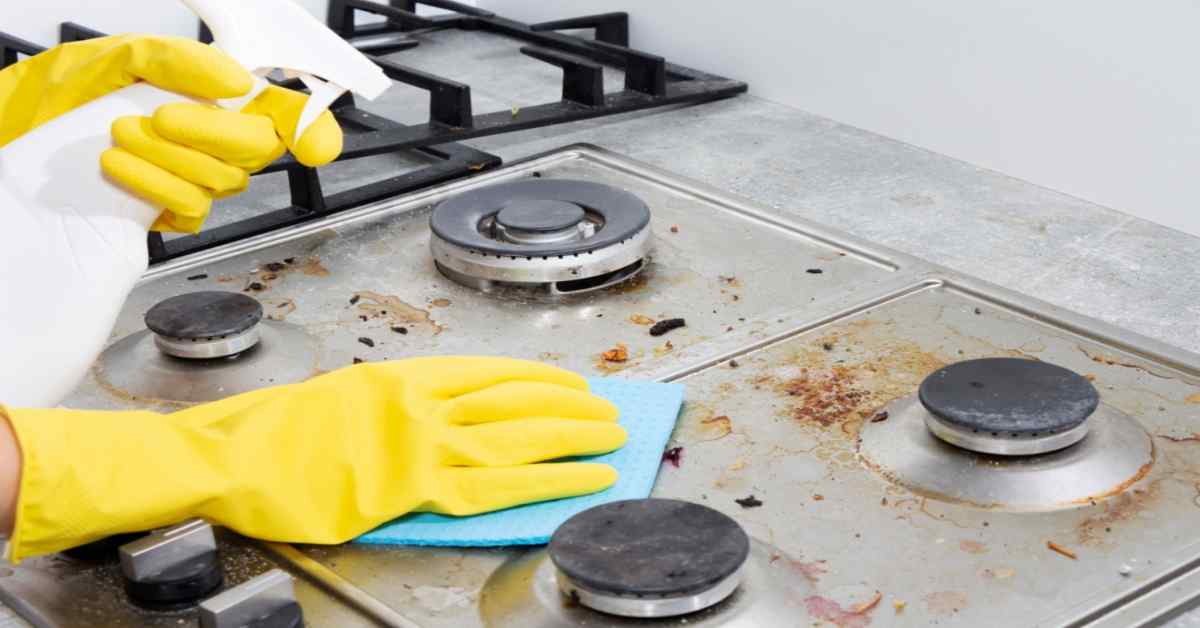
How to Clean a Gas Stovetop: Easy and Effective Natural Methods for a Sparkling Clean Finish in 2025
November 3, 2024
1857+ views
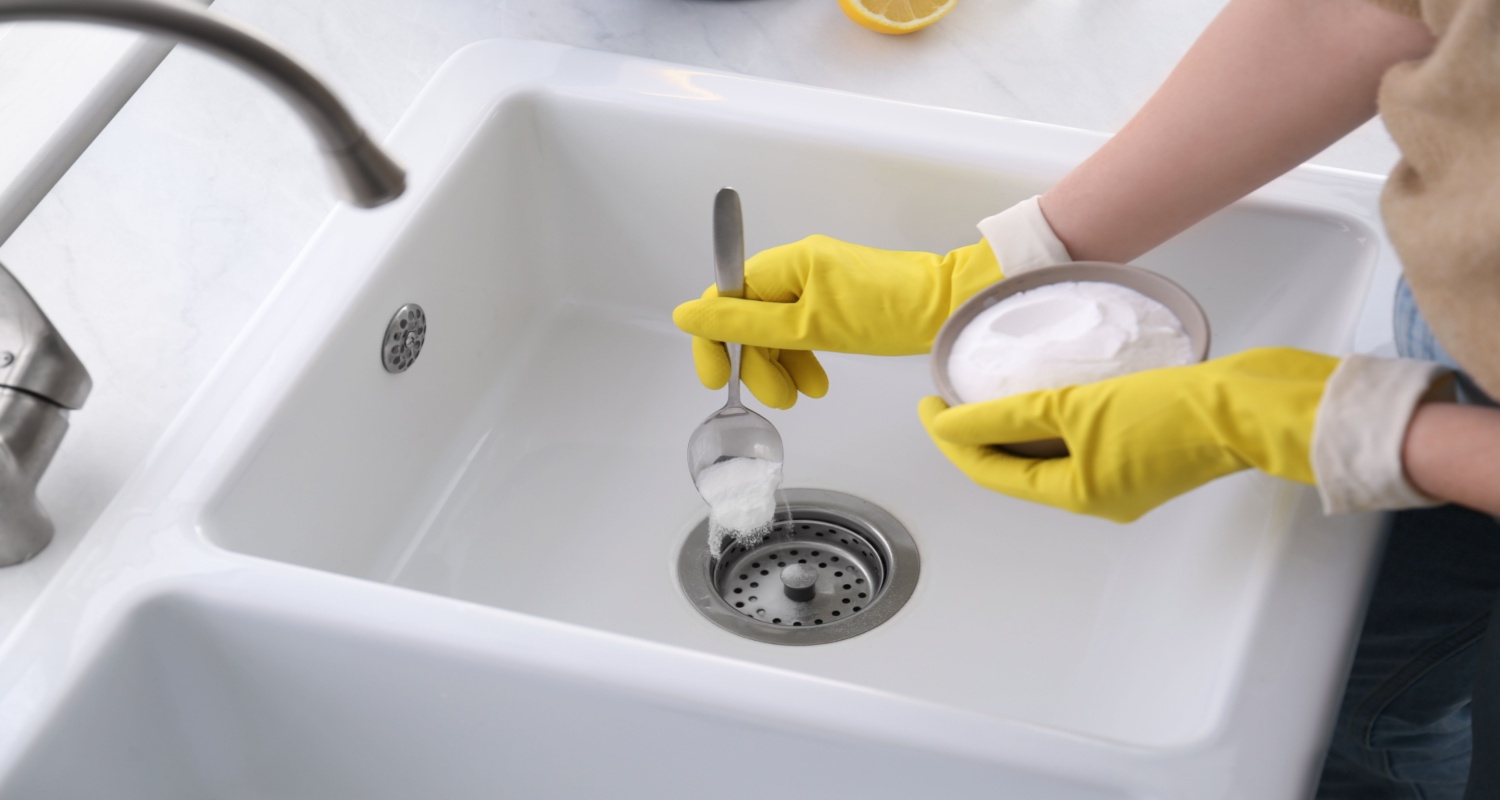
How to Clean Your Kitchen Sink: Simple Steps for a Sparkling Finish in 2025
October 10, 2024
5488+ views
Loved what you read? Share it with others!
NoBroker Cleaning Testimonials
Most Viewed Articles

Diwali Cleaning Tips and Guide: Make Your Home Shine for the Festival in 2025
October 23, 2024
13825+ views
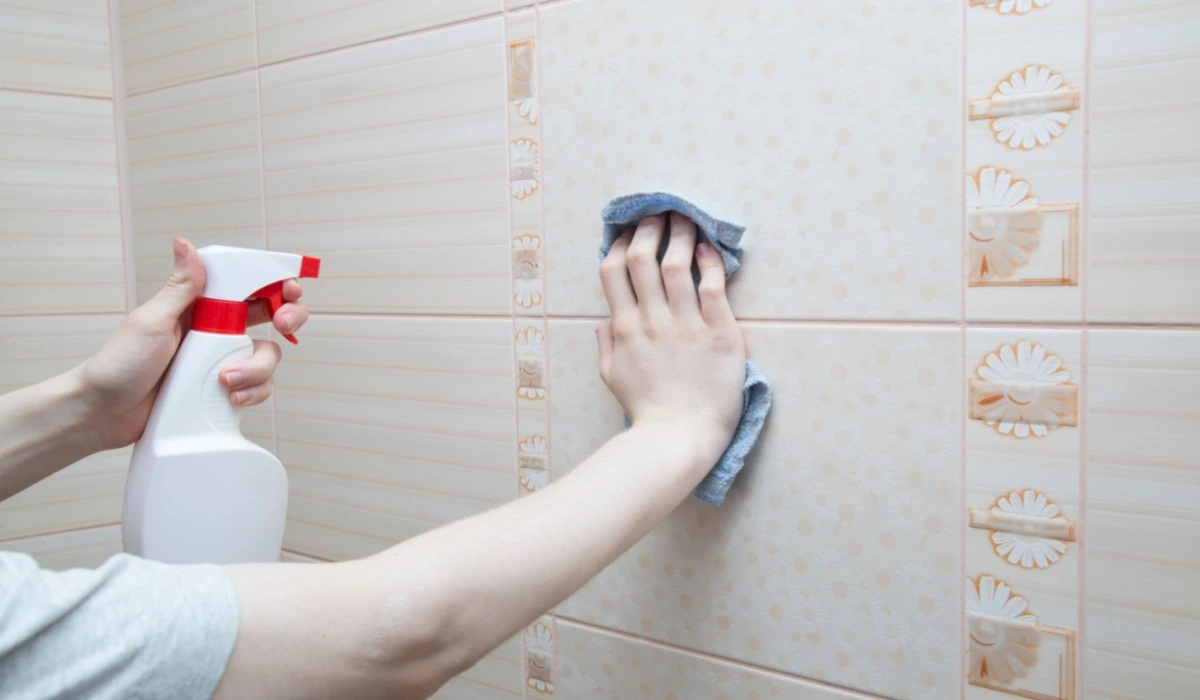
How to Clean Bathroom Tiles: Easy and Effective Methods for a Sparkling, Hygienic Bathroom for 2025
January 15, 2025
9878+ views

How to Clean Kitchen Exhaust Fan Properly?
January 15, 2025
7619+ views

October 10, 2023
7389+ views

Deep Clean Your Washing Machine: Step-by-Step Guide & Tips
October 16, 2023
7183+ views
Recent blogs in
Septic Tank Cleaning Methods: How to Clean a Septic Tank?
January 16, 2025 by Siri Hegde K
How to Remove Stains from Walls? Quick and Easy Tips to Restore Your Walls' Original Beauty in 2025
January 15, 2025 by Susan
How to Clean Kitchen Exhaust Fan Properly?
January 15, 2025 by srivalli susarla




Join the conversation!